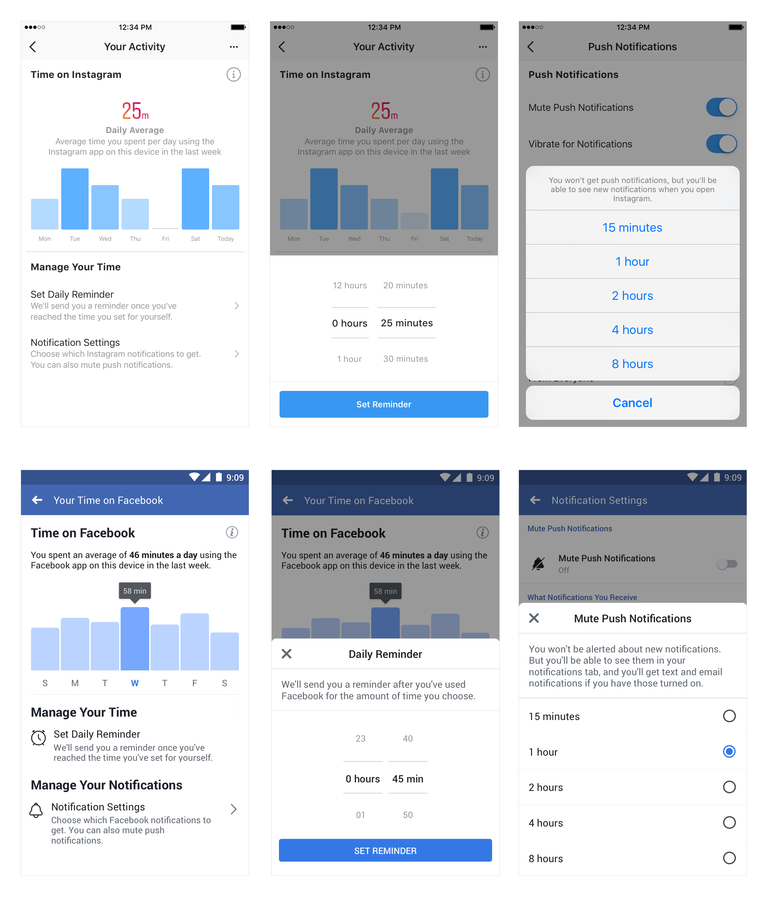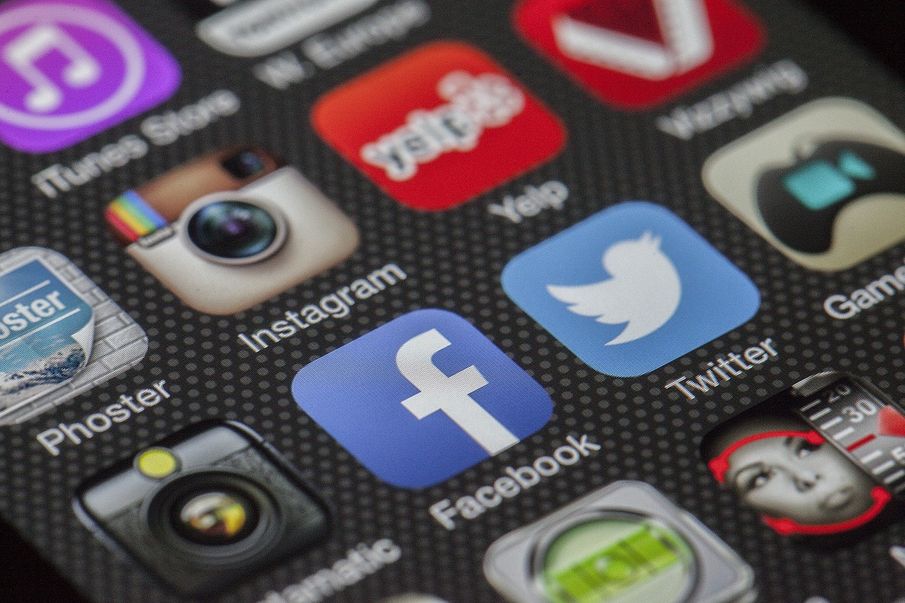Users will soon be able to monitor how long they are spending on each site, set reminders once they read self-imposed time limits, and mute push notifications for a set period of time
Facebook and Instagram have announced new tools to help tackle social media addiction. Created in collaboration with mental health experts and organisations, this latest development follows numerous concerns that excessive social media use can have negative impacts on our mental health and wellbeing, as well as Facebook's acknowledgement of the negative effects spending too much time on the platform can have.
The planned update will allow users to check how much time they have been spending scrolling through each app or website, set reminders for when they reach a personally set allotted time, and mute notifications for a self-determined period of time.

Grant Blank, from the Oxford Internet Institute told BBC Newsbeat: “I wouldn't say it's a radical change or that it's going to really change a lot about the way that most people use Facebook or Instagram.
“It strikes me as a way to balance their corporate interest of keeping people spending as much time as possible on Facebook, while still being responsive to people who find the continual notifications to be disturbing or distracting.”
Product Management Director at Instagram, Ameet Ranadive, and Director of Research at Facebook, David Ginsberg in a recent announcement about the tools said:
“We developed these tools based on collaboration and inspiration from leading mental health experts and organisations, academics, our own extensive research and feedback from our community. We want the time people spend on Facebook and Instagram to be intentional, positive and inspiring.
“Our hope is that these tools give people more control over the time they spend on our platforms and also foster conversations between parents and teens about the online habits that are right for them. We have a responsibility to help people understand how much time they spend on our platforms so they can better manage their experience.
“It’s not just about the time people spend on Facebook and Instagram but how they spend that time. It’s our responsibility to talk openly about how time online impacts people — and we take that responsibility seriously. These new tools are an important first step, and we are committed to continuing our work to foster safe, kind and supportive communities for everyone.”
The announcement of these new tools follow numerous positive changes from Instagram this year. Earlier this year, Instagram announced the creation of a new Wellbeing Team as well as the introduction of ‘Can we help?’ messages that offer help and support when sensitive hashtags are searched for.

Instagram also unveiled anti-bullying filters in May. Automatically on, these alert Instagram to repeat problems with bullying while hiding bullying comments from users. These new filters expanded on 2017’s introduction of offensive comment filters which hide toxic and divisive comments.
In contrast, Facebook's controversial introduction of 'Messenger Kids' in December 2017, their first app designed for children aged just six to 12 was met with numerous concerns. Around 100 children's health, mental health advocates and organisations urged the social media giant to discontinue the app.
Facebook has continued making changes to the app based on parent feedback, however there have been no signs that they may shut it down.
Discover more about how social media can affect our lives, our levels of self-esteem, and feelings of anxiety at Counselling Directory.


Comments